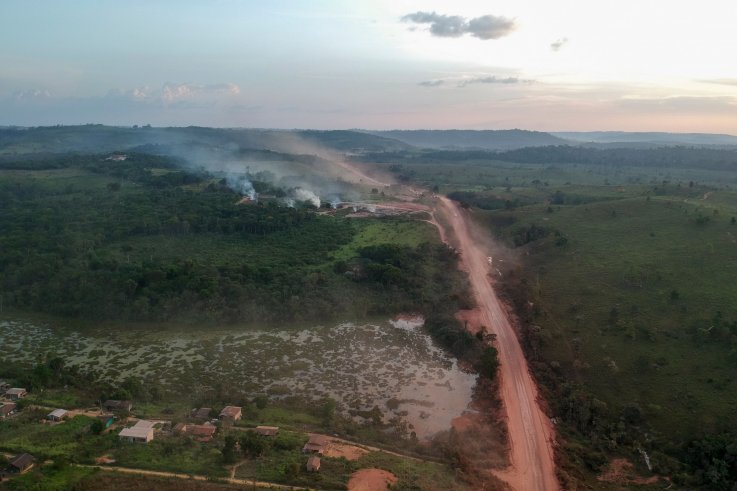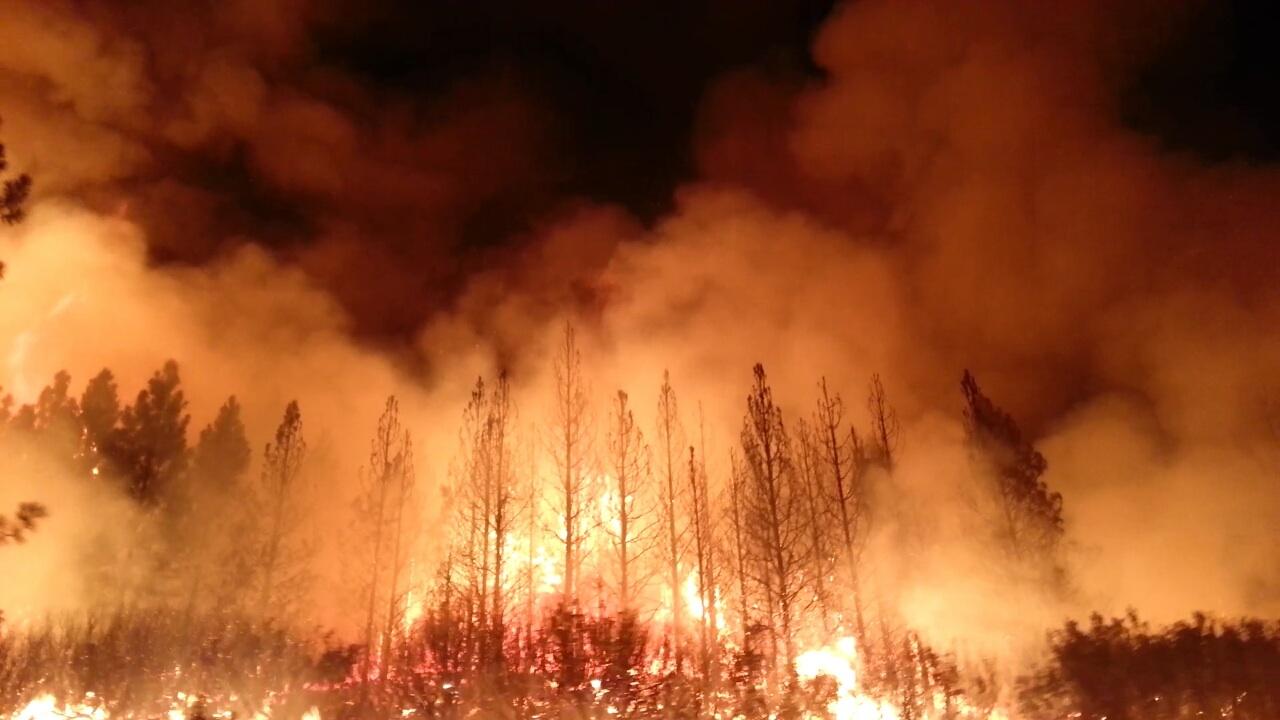Fires still blaze across the Amazon rainforest in South America, at a rate that continues to surpass the number of fires in 2018. But while August saw a nine-year high in fires, September—a dry month which the number of fires has historically tended to increase— saw a sharp drop. Scientists are not sure why.
In total, the Brazilian National Institute for Space Research found that there were roughly 20,000 fires in the part of the Amazon within Brazil in the month of September, according to the Washington Post. That was a 35 percent decline from August, when somewhere near 31,000 fires burned. There were 20 percent fewer than in September 2018, when there were 24,500 fires.
Most of the fires are caused by humans. People often deliberately set the Amazon on fire as part of an ancient technique known as "slash-and-burn agriculture" that farmers use in order to create space to plant their crops and room for their livestock to live and graze.
"Farmers cut down trees at the end of the dry season and then burn them right before the rains start," said Dr. Erin Sills, a North Carolina State professor, according to Phys.org. "This leaves a nutrient-rich layer of ash on the ground that provides fertilizer for crops."
Some have suggested that the decrease may be attributable to rainfall as well the Brazilian government's use of soldiers to combat the blaze, the Post reported.
President Jair Bolsonaro, who took office in January of this year after a year of campaigning on promises of opening the rainforest for development, has consistently downplayed the severity of the fires and declined major assistance from foreign countries in controlling them.
Bolsonaro told the United Generations General Assembly on September 24 that the Amazon was not on fire but rather full of riches that Brazil would use how its own government saw fit, according to the Post.

But some scientists have expressed fears that continued rapid deforestation would devastate the rainforest's ecosystem and turn large portions of into "arid savanna," according to the Post. This would change which species are able to prosper in the area, perhaps irrevocably, and render the resources in the forest unusable.
More than 30 million people currently live in the Amazon rainforest, which also the world's largest rainforest, according to Phys.org. This includes some 350 indigenous people, who rely on it for food, shelter, clothing and medicine.
As of now, researchers estimate that they have only studied one-half of one percent of the medicinal potential of all of the rainforest's flowering plants, according to the World Wide Fund for Nature. As the biome slowly shrinks due to deforestation, so does the diversity of its wildlife — along with the potential use of plants and animals that are yet undiscovered.
Source: NewsWeek

